|
2/14/2023 I Don’t Belong Here: Your Friendly Neighborhood ADHD-er Talks Suicidal Ideation and SurvivalRead NowTrigger warning: suicide attempt. Belonging is such an innate human desire that we often forget what a large impact it has on our overall mental health and wellbeing. Newborns need acceptance from their parents/caregivers, children and young adults seek acceptance from peer groups, and adults seek acceptance through partnerships, both romantic and platonic, because it makes us feel connected and fulfilled, bringing purpose to our time on earth. So, what happens when belonging seems to belong to everyone but you? WITH UNDIAGNOSED ADHD AND SUSPECTED AUTISM, I NEVER FELT I BELONGED ANYWHEREWith almost 8 billion people in the world, it seems like it would not be that hard for everyone to find a sense of belonging somewhere with relative ease. I can tell you that was not the case for me, and if you are neurodiverse maybe it was not the case for you either. I spent the first 33 years of my life with undiagnosed ADHD and suspected autism. As far back as I can remember I have been “weird”. Other than with my twin sister – who is my forever best friend and the one human on earth who understands and accepts me completely – I have never felt like I belonged anywhere. Always a bit of an outsider, I never held onto friends for very long and have never been in a relationship for longer than 2 and 1/2 years. To say that I struggled in academic, social, and professional settings for over three decades of existence would be a gross understatement. My neurodiversity dictates how I perceive and interact with the world around me but for most of my life I had no idea I was neurodiverse so most of my energy was spent on trying to force myself to function like my neurotypical peers. After all, that’s the ideal, right? Societal, social, and professional norms are built on the premise that we all “should” think, behave, and communicate in a similar (i.e., neurotypical) fashion. NO ONE UNDERSTOOD ME. NOT EVEN ME.When you fall outside of that very small and limiting box of expectations, your reality may be very lonely. I could never quite grasp why it seemed so easy for others to make and keep friends, to move in and out of relationships, to know just what to say and how to act so that people wanted to be around you. I tried so hard to fake it and be like everyone else, but the real me always came out and it always meant losing friends and partners because they didn’t understand me. I didn’t even understand me. I knew there was something different and I spent a very long time trying to find out what that was. For as long as I can remember, I have been searching for answers about why I was, well, me. I have been in and out of therapy since I was 8 years old, sitting in front of licensed clinical therapists, psychologists, psychiatrists, primary care physicians, teachers, and really anyone who would listen, trying to find myself. Because I knew I was not like everyone else but could not figure out how to “fix” myself, I suffered from profound anxiety and depression with suicidal ideation developing in my teenage years. I was misdiagnosed multiple times and put on so many medications for anxiety and depression with nothing really working, which only added to my despair. UNDULATING BETWEEN F**K THE WORLD ATTITUDE AND CHILD-LIKE DESPERATION FOR ACCEPTANCE AND LOVEThe root of my challenges came from my neurodiversity and because that had not been identified, nothing improved. As a result, I undulated between hyper independence with a f**k the world attitude and child-like desperation for acceptance and love. Without an understanding of the why behind my feelings, perceptions, and behaviors, I spent my youth adrift in dangerous waters. In an effort to cope with my very loud brain and my incredibly deep emotions, I turned to alcohol, tobacco, occasional marijuana, and toxic relationships. Not only did these things give me a pseudo escape from a reality where I did not belong and did not know why, it gave me an excuse to lean into the rough edges of myself. After all: “Everyone gets rowdy when they drink so it won’t seem weird that I’m loud and hyper and over the top.” “Smoking will show everyone that I am damaged and tough. Besides, what do I care if it hurts me?” “Weed helps my brain take a break from the never-ending stream of consciousness pulling me in 10 different directions at once.” “Love is supposed to be chaotic. Screaming at each other and getting into fights is a show of passion. I have to process my strong emotions somehow and toxic relationships give me an outlet to do that with the false sense of security that comes with being with someone, even if they’re wrong for me.” MY DOWNWARD SPIRAL DOWN INTO DARKNESS AND SUICIDE ATTEMPTSShocking no one, these tactics only furthered my downward spiral. The first time I tried to take my life I was 19 years old, just a few weeks shy of finishing my freshman year in college. I had gone through a bad breakup from my first serious relationship. The breakup was a result of a mistake I made, coupled with my unhealthy coping mechanisms and general lack of knowledge about my brain wiring, I descended into a very dark place. Research shows us that those with ADHD are more likely to use alcohol, tobacco, and illicit substances and have a greater risk of developing a substance use disorder than those without ADHD. Never in my life had this statistic fit me more accurately than during this time. I was drinking to excess back then and engaging in dangerous habits like reckless driving and other thrill-seeking activities. None of these things made me feel better and no matter how hard I tried to fit in and find that sense of belonging, I still felt deeply alone. One night sitting in my dorm room, it all became too much and I made the decision to end my life. I texted all of my “friends” to say I loved them and took an entire bottle of pills with a liter of vodka. One of the people I texted was suspicious of my wording in the message and found me on the floor when she came to my room to check up on me. She called for help, and I was taken to the ER, and given charcoal to neutralize and expel the poison in my stomach. I spent a night in the telemetry unit to make sure my heart was not damaged, evaluated by a psychiatrist, and sent home with my mom and sister, who had driven almost 6 hours to get to me when they received the news. At first I felt like a failure and the feeling of “I don’t belong here” and wanting to end all the pain did not recede immediately. Most days it was a fight to find a reason to stay, but I kept fighting. As time passed, the reasons to stay became more and more powerful. The journey hasn’t been easy, but it has absolutely been worth it. INTERPLAY BETWEEN MY EXPERIENCES AND MY NEURODIVERSE MINDI did not know it at the time, but my experiences are directly reflective of the neurodiverse mind. I have an extremely hyperactive brain, so I talk a lot. I also have a tendency to be impulsive, and constantly struggle with executive functioning like task initiation and working memory challenges. I always seek out dopamine and get bored easily when there is not enough novelty or excitement. I am plagued by rejection sensitivity dysphoria and ruminating negative thoughts, and have difficulty maintaining healthy relationships with romantic partners, finances, food, and physical activity. Despite fitting the picture of a combined-type ADHDer perfectly, I did not receive an accurate diagnosis until I sought one out myself after my young nephew was diagnosed. At that time, I also dove into researching neurodiversity and was blown away by how much I related to the experiences of those with ADHD and autism. I found a local professional who diagnoses adults and made an appointment with her for assessment and on-going care management. CORRECT DIAGNOSIS ENABLES ME TO LOVE ALL THE PARTS OF ME I TRIED TO EXTINGUISH FOR SO LONGThe diagnosis changed my life because I was finally able to put a name and a frame around my experiences. It helped me to stop feeling broken and start feeling unique in a powerful and profound way. It has allowed me to find answers and explanations for so many of the things that made me hate myself. I can now lean into my strengths and find ways to love all of the parts of me that I have tried to hide or extinguish for so long. Having undiagnosed ADHD and suspected autism meant that I walked through so much of my life trying to force myself to be anyone other than me. Wearing a mask every day and feeling like the real me would never be good enough was depressing and defeating. The lack of belonging led me to a point where I attempted to take my own life. Thankfully, I was not successful. “Failing” at that has allowed me to flourish in my purpose of creating a sense of belonging for so many others who have spent their lives feeling alone. For me, life changed when I stopped trying to be everyone else and figured out how to work towards being the best version of me. Next time you feel like you don’t belong here, make sure you are seeking belonging in your “here” and not someone else’s. GUEST AuthorOur heartfelt gratitude to our guest author this week, Gwendolyn Janssen MHA, MSN, RN, for courageously sharing her story with such vulnerability and bravery. In the words of California's former Surgeon General, Devika Bhushan, who thrives with a bipolar diagnosis, "stigma festers in the darkness and scatters in the light." By sharing our stories, we humanize our struggles, removing bricks from the wall of stigma and letting light shine through. Those struggling step out from the shame and silence and reach out for help; and, are empowered to come into their own surrounded by their inner lights, self worth and self love. We all deserve to be seen, heard and valued. Thank you for this reminder Gwen. You will always belong. Shine on mighty warrior, shine on.
6 Comments
Despite the abundance of dating opportunities, finding love has never been more challenging. We’ve come so far with technology and cultural progress, yet we still struggle with dating burnout. Finding love should be simple now, but it’s become a complex and emotionally draining journey. We strive for security, independence, and growth in our relationships, yet the search for love seems to bring on feelings of anxiety, insecurity, and heartache. We want to protect ourselves, but it’s becoming harder. Dating World ChangeD But Our Humanity Remains the SameThe feelings of unworthiness and shame individuals with mental health challenges experience when dating are often overlooked. Asking for an emotional connection right away can feel like an imposition, and waiting too long can leave us with doubts. Despite the turmoil, we still have to play the game and losing sucks. We hide our feelings, put on a facade, and are afraid to show our vulnerabilities. We seek validation and send panicked screenshots to our friends for the next best reply. We’re constantly second-guessing and navigating with care, yet we dare. But sometimes, in the quest for love, we shove our emotions to the back of our minds, choosing solitude over relationships and self-discovery over love, believing that we must love ourselves before we can love others. Navigating My Highs and Lows In Pursuit of LoveI have struggled with my moods for a long time, especially in what some would say are my “hot years.” I’ve woken up on many days with the vow of not pursuing relationships altogether, feeling unworthy and overwhelmed. On other days, I would feel ambivalent, deleting dating apps and re-downloading them frequently, exhausting my very little energy. I would be hot and cold, asking for space one moment and as little space as possible the next. If I really liked someone, I’d freak out. What if they could see through me? Sometimes, I would reveal too much too soon, and I always wondered, why was that a problem? I have searched for stories like mine in books, TV shows, movies, and other people, hoping to find a way to make it to the other side. But to avoid heartache, save energy, and keep other aspects of my life stable, I have denied myself the opportunity to date on several occasions. I’ve also been in failing relationships where the guys would gaslight me, twisting my words and actions to make me question my own reality. And when I dared to speak up, they would blame it on my bipolar disorder, making me feel like the villain. They would use my mental health as a tool to manipulate and control me, making me doubt myself and my own experiences. It was a constant battle, trying to navigate the confusion and uncertainty they created. I felt like I couldn’t trust my own mind and that I was constantly walking on eggshells, trying to avoid their wrath. My condition felt like a burden, and I thought I must be wrong after all. It was cruel and left me feeling isolated and alone. “Take Me As I Am, Whoever I Am”I had to learn that my bipolar disorder is not something to be exploited or used against me and to trust my own mind. I had to learn to dig deeper into my intuition and virtues, always align my actions to my moral compass and walk away when needed. This guided me in all types of connections I made over these years. I have slowly started speaking up about my mental health. Among friends, coworkers, and at open mics because pretending that I was not crumbling on the inside was getting exhausting. A friend once suggested the third episode of the show “Modern Love,” in which Anne Hathaway plays a character who navigates the dating world while struggling with bipolar disorder and balancing her professional life. That hit me hard. I must have cried throughout the episode. The title “Take Me As I Am, Whoever I Am” is not just for the world but also something I have had to ask myself to do. I feel my feelings very deeply. Lately I’ve had to dig a lot deeper to uncover what I am running away from, discover what keeps me from moving forward, and how I can avoid this back-and-forth in my decisions and actions. These promises of self-protection would keep me isolated and spare others from hurt, but they also burnt bridges and left some perplexed. What followed eventually was regret. With goals achieved, self-care maxed out, and passions no longer filling the void, this dust would settle, leaving me alone with my desperation staring back at me. But I do often catch a break which gives me a chance to breathe as a human — a messy, vulnerable, magnificent human who is very well capable of love. LET LOVE FLOW BY EMBRACING YOUR VULNERABILITIES AND INSECURITIES AND PASS YOUR LOVE ON TO OUR CHILDRENThis is not just a story about seeking love in romantic relationships but about preserving the very essence of it. A story about love that:
As I delved deeper into my emotions, I discovered a hidden treasure — a superpower I never knew existed. Embracing the ebbs and flows of my moods made me incredibly attuned to the feelings of others, and empathy began to flow naturally from me. I recall a moment when I was feeling particularly low and witnessed a woman crying on the subway, ignored by all around her. Without a second thought, I followed her off the train and gave her a comforting long hug until she said she felt better, and was ready to go on with her day. It was then that I realized the true power of empathy and how it can transform the lives of those around us as well as ourselves. It makes us brave to show up. It’s also about learning to receive empathy as well. My friends who understand my condition show me endless grace and compassion when I feel unworthy and when my thoughts become stuck in a cycle. Let’s pass this love on and assure children who’ve endured the bitter pain of growing up in an emotionally abusive environment, where love was a distant dream, that it was never their fault. They have every right to feel the hurt and the pain. Indeed, allowing themselves to do so is the truest form of love. There are those among us – coworkers, friends, and even strangers – who will listen without judgment and hold you tight as you cry. That is love. And, when your friends are too burdened to reach out, you must reach out to them with tenacity and openness and, when they finally open up, that is love. We all seek love in our romantic relationships, but we can’t limit it to that. It flows freely. Love is everywhere, in every person we come across, and in every moment. We have all felt denied of the love we so deeply crave, but let that be the driving force to create more of it. We are love; we are it. Do not take my word for it. Go out into nature, sit in a garden and truly relax. Take in every detail around you, and you will see it. You will feel it. DO NOT LET YOUR MENTAL HEALTH LIMIT YOUR ABILITY TO LOVETo those battling their mental health, please hear this: your capacity for love is not limited by your struggles. It is often through the darkest of days that we learn to love with the deepest of sincerity. You have felt the pain of life’s harsh realities, and in that pain, you have found the strength to love with a ferocity that others can only dream of. You understand the importance of compassion and empathy: of truly seeing and understanding another person. You have been to the depths of despair and have emerged with a heart full of love and the courage to give it to the world. You are capable of loving in ways that others can not imagine; your love is pure. It is real and it is what the world needs. You are the light in the darkness, the hope in the despair, and the love in pain. Believe in yourself, in your capacity to love, and let that love be the beacon that guides you through life’s journey. I always knew I was different. A little too sensitive, a little too anxious, a little too much. As a child, I struggled with social anxiety and an obsessive need to please others. And, although I appeared to be a very happy child, something was starting to change in me. As a teenager I began to struggle with suicidal thoughts but was too afraid to tell anyone. I had been placed in therapy, but I was too scared to tell my therapist just how sad I was for fear of what would happen to me. my facade crumbles and my mental health along with itI once heard Jim Carey say that “depression” means “deep rest” and that a depressed mind is your body’s way of saying, “I need a break, I don’t want to play this character anymore.” That is exactly how I felt. I was physically and emotionally exhausted from trying to be happy all the time, trying to please others, and wearing a mask so that no one could see the real me and how much I was hurting. By the time I reached college, the façade that I had been holding up for so long came crumbling down and I had a full mental breakdown. I was forced to drop out of school and was eventually placed into McLean hospital as my behaviors became increasingly dangerous. I felt like I had failed everyone in my life and had failed myself. I no longer saw a bright future. I didn’t care anymore about anything, especially myself. Borderline personality disorder, anxiety, and depression diagnoses help me make sense of myself and my lifeI was hospitalized at 19 years of age and diagnosed with borderline personality disorder, anxiety and depression. Once I came to understand my diagnoses, the distorted way that I thought started to all make sense. I finally understood why I was such a people pleaser, why I was so terrified of being abandoned by my loved ones, why I was so afraid of anger, and why I had reached my breaking point. I started to realize that these illnesses had dictated so much of my thought processes that I didn’t even really know who I was. I lived in such paralyzing fear for most of my life, afraid to upset people and afraid to fail. I was exhausted. BEGINNING REAL WORK OF UNDERSTANDING WHERE MY ILLNESSES END AND I BEGinBut now the real work has begun: learning to understand where the illnesses end and where Dina begins. After spending ten years in and out of hospitals and rehab facilities, I was able to slowly reintegrate into mainstream society. I was able to go back to community college and then finish my Bachelor’s degree at Boston College while I worked a full-time job. The more I learned about myself, the more I began to realize just how smart I was, how kind I was, and what a great laugh I had. FULLY EMBRACING MY LIFE’S DREAMS, I Go for itWith a lot of grit and hard work, I was able to finally pursue the career path that I always envisioned for myself, landing internships and eventually a full time position working in television. I have achieved things that many thought were not possible for me and, even now, I need to constantly remind myself to be grateful for that. However, as we age and mature sometimes our dreams change and now, I am beginning to envision a whole new career path as a mental health empowerment keynote speaker. And once again, I plan to achieve that because I know that I can. my journey to recovery is a medal of honorI used to want to sweep the fact that I had endured a life-altering mental illness under the rug and just move on. I was ashamed and embarrassed of my past but now, I realize that I should NOT be ashamed of this. Rather, I should wear my journey to recovery like a medal of honor. I should be proud, and I should remind myself of that every day. A mental illness that alters your life never truly goes away but rather it lies dormant and reappears when life gets tough. I often try to control all aspects of my life because I have somehow convinced myself that if I can control life then it can’t throw me off the tracks. It can’t derail me and make me sick again. But that is not how life works. my light is A Beacon Reminding me We ARE All Perfectly ImperfectI am still learning to let go of the reins every once in a while, embracing the knowledge that even if life breaks me, I won’t stay broken forever. I am still actively in therapy and on a daily medication regimen. I fully support this because it allows me to lead a “normal” life. I still have issues that I struggle with daily, and I continue to work on myself every single day. Do I wish I was not an anxious person? Yes, of course! Do I wish I had not lost ten years of my life? Absolutely! But am I proud of the person I became? Undoubtedly! please heed my advice to youI once heard a quote, “when you go into the storm, you don’t come out the same person … you aren’t supposed to.” Mental illness is a storm but, like the quote says, you can come out of a storm, you just aren’t the same person who went into it. You are stronger and more resilient. My advice to you is this: don’t allow your mental illness to dictate what you are capable of. Only you can determine that. And remember, you are not flawed. You are not unlovable. You are not unworthy. You are perfectly imperfect. Go chase your dreams. You got this!
Why are FAMILIES and mental health advocates of loved ones WITH SERIOUS BRAIN DISORDERS fighting so hard FOR RECLASSIFICATION?Recently, the term Serious Brain Disorder (SBD) has been circulating in my Facebook mental health advocacy groups more and more. At first, it seemed as if these circles of advocates wanted the insurance companies to code Serious Mental Illnesses (SMIs) differently so they would issue better compensation to psychiatric providers and so patients could have easier access to treatment. In that case, I thought, why not address it with how the insurance companies are required to code them? But it starts elsewhere, beyond the insurance companies. As I explored and researched the issue, it became clear that taking Serious Mental Illnesses seriously must include labeling it transparently and as unbiased as possible. Here are several reasons why families and mental health advocates of loved ones with Serious Mental Illness—especially schizophrenia and the like—are fighting with all their hearts, souls, and minds to have it recognized as what it truly is: Serious Brain Disorder. First, What is SMI?The Diagnostic and Statistical Manual of Mental Illnesses defines Serious Mental Illness as “a small subset of the 300 mental illnesses that are in DSM.” “According to the National Institute of Mental Health, serious mental illness is relatively rare, affecting only 5% of the population over 18. Serious mental illness includes schizophrenia; the subset of major depression called ‘severe, major depression’; the subset of bipolar disorder classified as ‘severe’ and a few other disorders.”(4) One of the sources I interviewed pointed out that the general public doesn’t know what Serious Mental Illness is so reclassification would clarify the concept. On the other hand, I pointed out, wouldn’t that muddy the water? Not if they are educated. SBD EffortsAn organization advocating for the reclassification of SMI to SBD is the National Shattering Silence Coalition (NSSC). The nonprofit has eight points of unity members align under, and the first is their primary concern:
The Two Were Once OneThe two disciplines—neurology and psychiatry—are not as different as one may think. In fact, at one point they were one discipline. Historically, psychiatry and psychology were a part of neuropsychiatry until “psychiatrists enthusiastically embraced the key that they were given to the human psyche, and this new ‘mentalistic’ approach consequently detached psychiatry from neurology,” this article in neuro.psychiatryonline.org explains. “It may be further speculated that neurologists, too, accepted this dichotomy and were relieved to leave the treatment of mental illness to others.”(1) A Broken System Slighted and MisunderstoodMental health and the demand for psychotherapy and psychiatry are coming into the forefront on matters related to COVID-19’s mental toll on peoples’ psyches. However, advocates for SBD have been begging for practical solutions to a broken mental healthcare system long before the present worldwide crisis. Jeanne Allen Gore, SBD advocate, co-founder, and Coordinator of NSSC, argues that mental healthcare as an industry has been misconstrued, underfunded, and at a large disadvantage from neurology and pathology sciences and healthcare systems. Gore points out, “If you do the math, there is a glaring mismatch: $36.55 spent on adults with SBD compared to $478 on those with Alzheimer’s, which is 13 times, or 1,327% more per person.” According to Gore, other brain disorders like Alzheimer’s and autism have been inclined to more empathetic responses from the public. Since Alzheimer’s and autism have been funded and fought for their position at the table of medical sciences to be recognized as structural, biological, and medical brain disorders, it appears they garner more compassionate attitudes and legitimized views from society. The Science Has Been ThereIn the article at neuro.psychiatryonline.org, authors Shahar Arzy, M.D., Ph.D., and Shlomo Danziger, M.A. explain, “With our current scientific understanding of the cerebral basis of psychiatric disorders, the era of the computational, data, and genomic revolutions once again merges the domains of neurology and psychiatry for a neuroscientific-based diagnosis, monitoring, and treatment of neuropsychiatric diseases.”(1) In regards to SBDs like schizophrenia and symptoms like psychosis, science and technology are making ways to merge the disciplines of neurology and psychiatry. Especially in disorders like schizophrenia, severe depression, and severe bipolar disorder where psychosis is a symptom, these are brain-based and medical in nature. “More recent and dramatic evidence has come largely through functional magnetic resonance imaging and positron emission tomography,” per Mary G Baker, President, European Parkinson’s Disease Association as stated in Baker, Kale, and Menken.(2) Mary Palafox, RN, Chair of the Schizophrenia and Psychosis Action Alliance (S&PAA) states, “It’s not a debate whether schizophrenia is a neurological illness. Science has already determined schizophrenia to be a neuro-developmental disorder.” You can visit their website over the next few months and follow how S&PAA is actively changing the treatment paradigm for those with schizophrenia spectrum disorders. A Legal Loophole and Political ProblemsYet in practical solutions to psychosis in schizophrenia, psychiatrists cannot treat psychosis if the patient is not voluntarily admitted or concedes to treatment by their own will. In any other discipline, in a state of psychosis as a result of a medical condition, the doctors must treat, and their hands aren’t tied by laws. The danger of the legalities with SMIs or SBDs is what happens to many with SBD like schizophrenia when untreated, known as “dying with their rights on.” Jeanne Allen Gore writes: “People with neurological illnesses, under medical standards of care, have access to resources and supportive care that those diagnosed with a ‘mental illness’ do not have access to. Their doctor makes the decisions about what level of care is needed and when it’s needed, not a judge. For decades, the decision to admit a patient with SBD for medical care has been made based on laws requiring dangerousness and the availability of hospital beds, or should I say, lack thereof, rather than medical necessity.” She emphasizes, “This unconscionably cruel system has resulted in horrific abuses, neglect, and suffering. Our loved ones end up homeless, incarcerated, or dead far too soon. Science has proven these are no-fault, neurological brain disorders. Clinicians, doctors, and scientists know this. They are not a failure to control one’s behavior, a character weakness, or the result of a traumatic childhood.” Behavioral and mental health sciences have their value in psychosocial rehabilitation for substance use. Psychotherapy continues to be a respected and evidence-based approach for those with cognitive damage and disorders from substance use, trauma, and brain injury. The value of psychology and psychiatry cannot be ignored and compartmentalized, and there is a place for all these studies to effectively work together to help patients and those who care for them. It won’t be achieved as effectively and as successfully if true severe, serious mental illness, is not taken seriously in and of itself. To do that, action must be taken to move psychiatry and neurology back into a working relationship. The advances in science are here and there is enough evidence to show the validity of a medical cause of schizophrenia and these types of severe illnesses. The Bottom LineThe battle to have SMI recognized as SBDs continues, in order to be funded for more research to find better treatments and more physical tests connecting the symptomology of psychosis to the etiology (causes) of biological and physical structures. When the standard world health organizations take serious brain disorders seriously, then doors can open to more changes and better care. Then insurance payers can code them “medical” and doctors in hospitals and ERs will have to treat them as any other medical condition: with integrity, compassion, and ethics. Advocates for SBDs are pleading for this shift in terminology and semantics because of the severity of the illnesses and the brokenness of the system that currently treats those with them. With language that articulates that these disorders are brain-based and physical, reclassifying SMI to be recognized through medical standards can lead to better care and more practical solutions for individuals who suffer from it. This will level the playing field for equity in research and treatment funding, awareness campaigns, and give access to care and programs like #HousingThatHeals, just as Alzheimer’s and autism have achieved. With every discovery we make to understand mental illness, we will all inevitably have to face the reality that “mental” is medical. Reclassifying Serious Mental Illnesses as Serious Brain Disorders is the gateway to the broader acceptance of that reality. references
addendum from Kerry Martin, CEo & FounderAn added benefit of reclassification is removing the word "mental" from our narrative which would erode stigma in our society — in our workplaces, schools, social media, etc — saving lives and lessening suffering for our children, youth and adults struggling with their mental health. Stigma is trapping far too many behind its wall in silence and in shame, keeping those in need from reaching out for help. And, for those who believe we have made great strides in eradicating stigma, I would ask you, why hasn't our own Congress repealed a blatantly discriminatory law that has been on the books for almost 60 years, the IMD Exclusion, that has resulted in marginalizing our most vulnerable citizens, incarcerating them in our jails and prisons, walking over them on our cold streets, and pushing them into early graves?
1/3/2023 MYTHS Versus REALITIES OF Assisted Outpatient Treatment (AOT) FROM LENS OF mobile emergency psychiatric clinician ON FRONT LINESRead NowAssisted Outpatient Treatment (AOT) is a program under court order that motivates adults with serious mental illnesses who’ve had difficulty in adhering to voluntary treatment to engage in treatment. Civil courts and mental health agencies work together in AOT to reduce the frequency of inpatient hospitalizations and incarcerations. AOT encourages treatment teams to keep the recipients in treatment. An AOT request can be initiated as part of discharge planning on an inpatient unit, directly from an outpatient setting in the community, and upon release from jail or prison into the community. Forty-seven states and Washington D.C. allow AOT. Only three states, Maryland, Connecticut, and Massachusetts, lack AOT laws. Although AOT has become more accepted by mainstream society, controversy still exists because of myths. While I testified in favor of AOT at the state house in Massachusetts three times over the last several years, the strongest opposition came from peer specialists. AOT MYTHS versus realitiesMYTH: AOT is ineffective because there aren’t any consequences for treatment non-adherence. REALITY: Judges are not allowed to punish AOT recipients for non-adherence, but there can be consequences. The judge periodically meets with the recipient to reinforce the order. The length of the AOT program can be extended. The judge could order an emergency psychiatric evaluation. Rehospitalization on an inpatient unit might occur. MYTH: AOT is not person-centered and doesn’t align with the recovery model. REALITY: Although self-direction is limited at the beginning of the order, principles of the recovery model and person-centered care are used daily in AOT. Self-direction is preferred and should be maximized. Person-centered care can be emphasized even when recipients are not adhering to treatment. Using such an approach increases the chance of treatment adherence and positive outcomes. AOT does not necessarily lead to an increased sense of coercion. MYTH: AOT is too expensive. REALITY: Costs of AOT are small in comparison to the cost of inpatient care and incarceration. AOT is an evidence-based tool that typically results in fewer hospitalizations, fewer arrests, a decrease in homelessness, and fewer incarcerations. AOT saves money because hospitalization is far more expensive than outpatient care. MYTH: Comprehensive outpatient services that are voluntary would eliminate the need for AOT. REALITY: Many people with serious mental illness are incapable of engaging in treatment voluntarily because of their illness. Many of them have anosognosia, which is a lack of awareness of one’s own illness. By obligating mental health agencies and courts to engage them, AOT ensures that treatment interventions will be used for people who are most sick. AOT is a humane, reasonable, and evidence-based tool for people with psychosis who’ve had difficulty adhering to treatment. Widespread research has shown that AOT improves the overall functioning of its recipients. Addendum by Kerry Martin, CEO, accelerating social goodFor those interested in learning more about AOT and how it is used to help those most at risk for the negative and sometimes deadly consequences of not receiving treatment, additional reading follows:
GUEST AuthorLynn Nanos heads the Blogging Committee for National Shattering Silence Coalition Nonprofit, our pro bono client, and is also a member of their Steering Committee. She is a licensed independent clinical social worker employed as a full-time mobile emergency psychiatric clinician in Massachusetts. She evaluates patients in homes, jails, residential programs, day treatment programs, rest homes, hospital emergency rooms, and inpatient medical units, determining if patients are presenting a danger to themselves or others. She also authorizes and implements involuntary transfers of individuals to hospitals or refers them to residential treatment, outpatient care, or crisis stabilization units. 2/7/2022 A Personal Message to All Struggling, Especially teens and Young Adults: I See You, I Hear You, AND If My Words Could Make a Difference, This is What I Would Say to YouRead NowIf you were having symptoms of a heart attack would you call yourself “crazy” or would you call 911 and get help? Here’s what I would do. I would definitely not be calling myself “crazy.” I would be calling 911, telling them it was an emergency, that my life was in danger, and I need an ambulance and paramedics sent as soon as possible to get me to the hospital. If I could not call, my loved ones or friends would call. Even a stranger would call if they saw me collapse. If I saw someone in such a crisis, I would make the call to 911 myself. And what if medicine or life enhancing therapies such as nutrition, exercise, sleep, and stress reduction could help save my life? I would ask my doctor to educate me on the best “heart health” practices. I’d ask for prescriptions and referrals because I want to stay alive, be healthy, and I don’t want to die. So why do we insist on thinking our brain is not part of our body and act so differently when our brain health is at risk? Why do we dismiss or hate ourselves and/or think others will ridicule and/or shame us if we have a “mental” illness? Maybe in part it’s the stigma we feel and fear we’ll feel that’s so associated with the words “mental” illness. I don’t like how that word has been used. It’s said in disparaging ways, in unkind, and untrue ways - as in - she’s “mental” and he’s “mental.” “Mental” meaning “crazy” - less than human - an aberration. Being “other” than everyone else. “Just pull yourself together. Snap out of it! Stop wallowing. I’ll give you something to really cry about.” That’s some of the unhelpful comments we hear. And how about, “It’s all in your head?” Meant as a put down, but in reality, yes, that’s true. Inside our head is our brain and it needs help not sarcastic, shaming, or demeaning remarks and criticisms. Do I call my lungs “crazy” when I’m having an asthma attack? Definitely not. My lungs are not well, yes. But crazy? No. And what do I do to help myself? I’ll use my inhaler. If I’m still in an acute crisis - as in - I’m wheezing so much that I'm having real trouble breathing, I’ll get myself to an emergency room. Will I be ashamed of being asthmatic? No way. I will tell the nurses and doctors I have asthma and ask for medical help. How different, though, it can be for psychiatric illness that strikes at the brain. It’s essential to remember that the brain is part of the body. “Mental” illnesses are in reality physical illnesses. Our brain and our mind may suffer, but that does not mean we are “looney tunes, crazy, or nuts.” After all, the brain impacts our whole being - how we think, feel, act, speak, eat, sleep, and more. Think of it this way. When our brain is attacked from inside itself, we might experience a depression attack, manic attack, anxiety attack, panic attack, suicidal attack, self-hatred attack, what’s the point of living attack, an urge to self-harm attack, body image distortion attack, and other such “attacks” whose source is invisible from the outside while all too painful and real from the inside. Our brains are not “crazy.” These types of attacks are just as real, just as important, and are just as in need of help as when we have a heart attack. A heart attack can be life threatening. A brain attack can also be life threatening in terms of life and death, as well as the on-going quality of how we are able to live our lives. Let me ask you this. Do you know that suicide is the 10th leading cause of death in the United States? Here in Oregon where I live, the number one cause of death for ages 10 to 24 years old is suicide. These deaths did not have to be. The flesh and blood lives that could have still been lived now forever lost into the abyss of suicide. We must be vigilant and aware of “psychiatric brain attack” warning signs such as change in mood, suicidal thoughts and actions, self-harming, change in sleep and eating, alcohol and drug use, anxiety, panic, and despair. Our brain deserves respect, and it deserves help. We deserve our and others’ understanding and compassion, and not the cruelty of being shamed. Silence, shame, and stigma need to be banished. That will happen when the truth about psychiatric illness is known and we bravely share our mental health stories. Let’s make everyone aware that illness attacks on brain health are real. They can be life threatening and should be approached just as one would any other health crisis. Now that you know the truth and that medication and/or therapy help is available, please don’t become a statistic. Save your life. That’s what your brain and your heart want you to do. Have my words made a difference? I pray that they do. Your voice has power in The “If My Words Could Make A Difference” Youth Mental Health Campaign.
Teens and young adults can share their own creative pieces of work or view those submitted by others on ASHA International's website. They can not only be part of the conversation but help lift their peers up as well. Our youth are in a crisis, with a national emergency declared. please share OUR message and THIS campaign.Please share our message as well as this youth campaign with those who may benefit from hearing it or taking part in the conversation, and sharing their story. Let's all be there during this National Emergency for Youth Mental Health. Our youth are in a crisis. We cannot let them down. Let's remind them: "You are important. Your thoughts, feelings, and observations are important. You can make a difference. What if your ideas could help change the world? What if your ideas could help improve the life of just one person? Would it be worth it? We think so!" Do you need help now? Please reach out. help is available.If you're in a crisis, please reach out now. Call the National Suicide Prevention Lifeline 24/7 at 1-800-273-8255. Or, to connect with a Crisis Counselor, text HOME to 741-741. You can do this. You matter. AuthorDr. Diane Kaufman, MD, Child Psychiatrist, Humanism in Medicine Awardee, Founder-Director, Arts and Healing Resiliency Center, Mind Matters, PC; and, Suicide Prevention Collaborator, Accelerating Social Good. NOTE TO READER. This is a story submission to our Accelerating Mental Wellness Campaign from a stigma fighter. As part of our social change campaign to co-create stigma free workplaces built on a foundation of empathy with needed mental health programs and supports, we invite people to share their stories with us to help build the human case. Please join us in thanking Mehar, who finds within herself the courage to not only share here, but also uploads a selfie to our Wall of Solidarity, taking another brick out of the wall of stigma, signs our We Are All Worthy change.org petition, and shares her reasons why on LinkedIn, asking others to sign too. Mehar, you truly are a stigma-fighter superhero! And, we so love and appreciate you. May your inner light continue to shine on brightly. When manic, it is about wanting to change the entire world and believing I can. I truly live the words “the ones who are crazy enough to think that they can change the world, are the ones who do.” And it is not always a delusion. If I can brace it, channel it and welcome it. I can be just crazy enough. Just a little less crazy than the bad while braver than those who let logic come in the way and play it safe. They say it's in my head and I say yes, you are right, It is! but they don't believe it's true.Would it be truer if your brain was on the outside, I ask? Wouldn’t YOU do everything to protect it …anything that is needed? Why is it on me to teach you when you are the ignorant one? Doctors say “Let’s treat the highs first.” I don’t trust them. I feel exceptionally creative, powerful both physically & mentally. And, oddly spiritual. That to me is the best part. I can read the signs of the universe. But this phase transitions into a paranoia where I think my doctors are conspiring against me, and the entire world is my enemy. It is a constant battle because the highs bring out the best in me but the lows are my enemy. I know they are both liars, and still they are not. Unhealthy high horse of self-righteousness, over-confidence, grandiosity and detachment from reality. The racing, obsessive yet beautiful ideas but that incoherent pressured speech… where they get lost and so does everyone around me. Those profound conversations, my creative hunger! Am I making the best speech? Things I never said before, things I have never ever heard. “So profound” my friends would say, but my poor luck “what, what did I just say?!” lost in a memory fog, I am stuck in the middle of the best version of myself and the worst one.The bickering breaks me down. In my darkest moments, I fear the most, I see my universe collapse, and the signs fade ... no matter how much I stretch my arms. And then the whole sky comes down falling on me. And, for some strange reason, that sky is grey and dark and awfully quiet around me. The tunnel vision, it is surreal. And then, it grasps me in its arms, but it doesn’t want me to know what ‘it’ is. The anxiety feels like a gremlin sitting on my shoulder, whispering lies in my ears every moment of the day. But then the gremlin leaves. I just feel awfully lonely. The memory of my high-self is what keeps me going. I believe in all my dreams, hopes, and thoughts that were racing in my mind, and I pray I will remember them. I know now, from the help of my same therapists, doctors, and the loving community, that this is no illness. This is as humanly as possible I can respond to the miracles and trials of life. there is help. there is hope. But wouldn't it be amazing to seize that just crazy enough moment forever?Heck yeah! Here’s where I start. I sleep! Tired or not, depressed or not, my deep sleep is the place I start. Self-care, boundaries, and rest. I don’t need to earn, they are the natural states I was ripped off of. I don’t call myself manic for my great ideas. I own my brilliance. But I pick them one by one and contain myself with discipline and ask for help when I want. I am beyond those checklists of symptoms and the labels been put on my every action. I speak up, stand up for myself and do the same for everyone. “I carefully listen to the joys and waves of laughter and the cries of those who had been silent for a while as I march on. Those ‘silenced’ will roar one day to their glory, and in their roar, the stigmatic words of hate, judgment, and despise will fade.” I know it’s a swing so come join me, why not! My lows are mine, my highs are too. Going so deep in my life would be impossible, if it weren’t for this Bipolar Disorder we call. What if I am just wired differently, like so many are. My anxiety is my yearning, my depression is my cry for rest, my mania is my higher-self. All this magic is real…as real it could be. And even if it is an illusion, it is a lucky one. P.s. stepping out of my comfort zone into the comedy zone.My biggest inspiration is Tim Ferriss who flipped his bipolar into learning everything he could do. One thing he said that stuck with me: if you want something new don't go after what's already created. Create something YOU need the most. For me, I stepped out of my comfort zone and onto the stage. I stood up and started making jokes about being bipolar. My mother couldn't stop laughing nor could the audience. But this was as much for me as it was for them, if not more so. I hope you enjoy. |
Details
Archives
February 2023
Categories
All
|
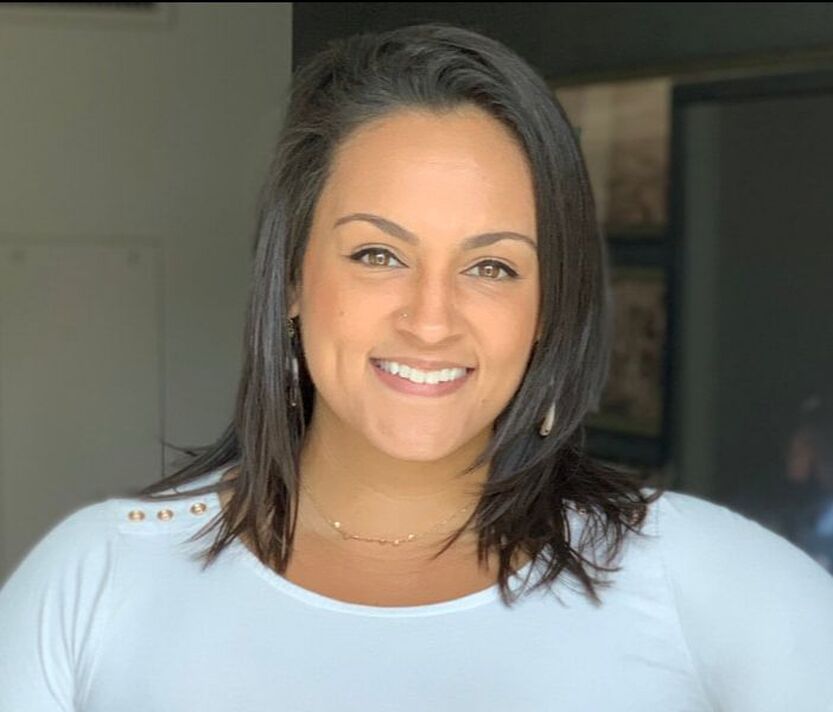


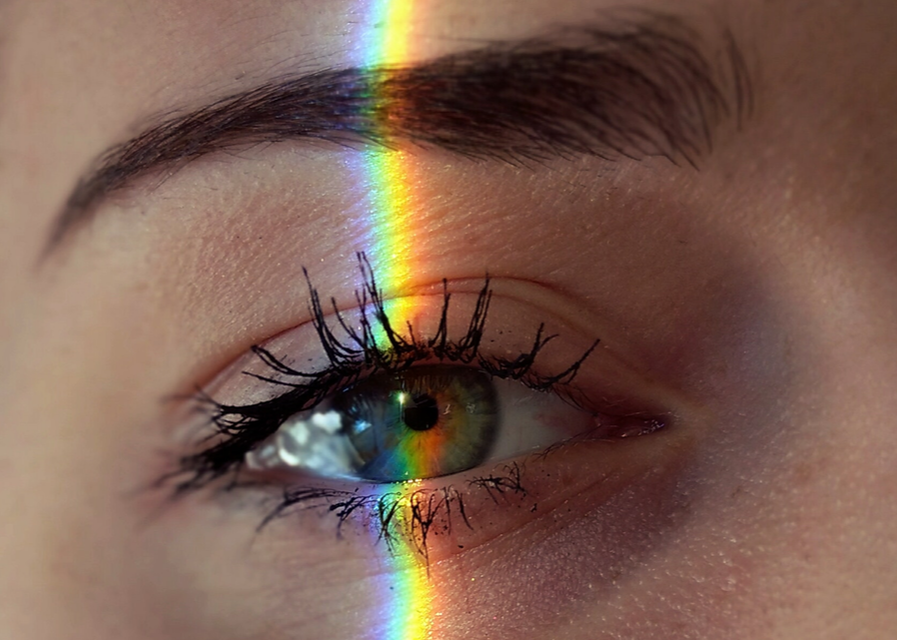
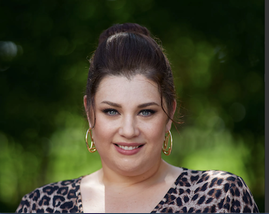
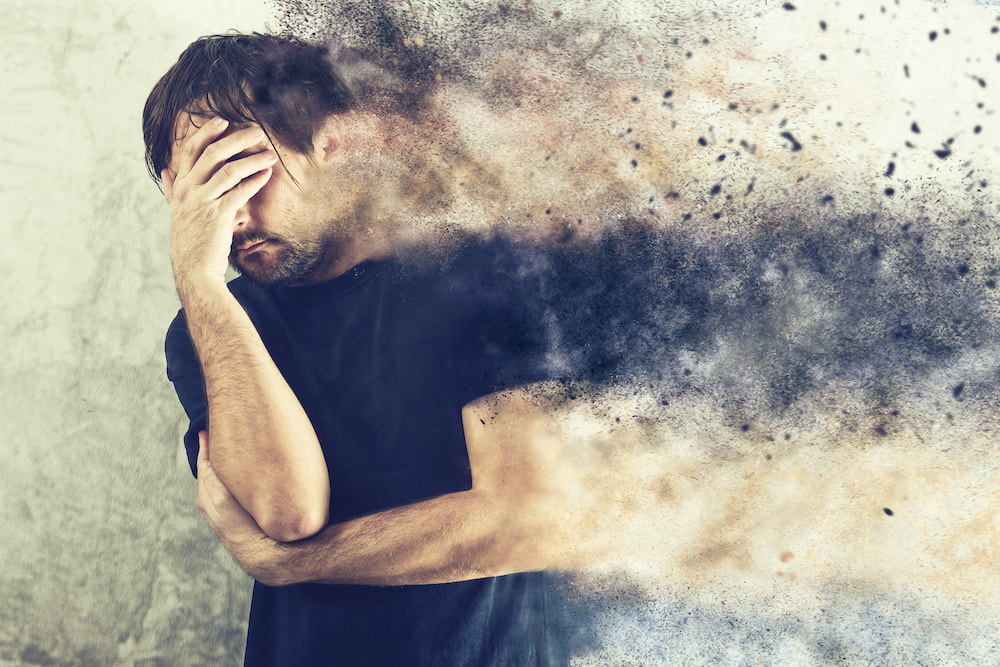
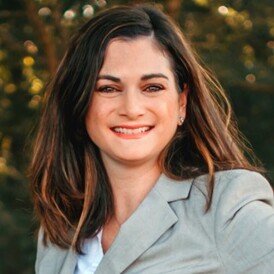
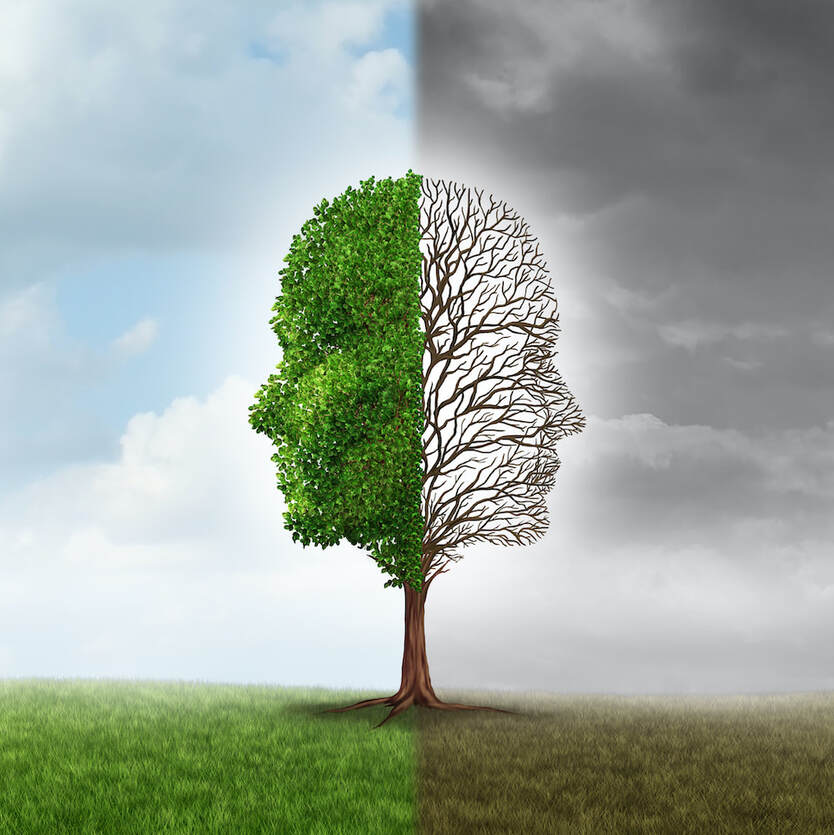

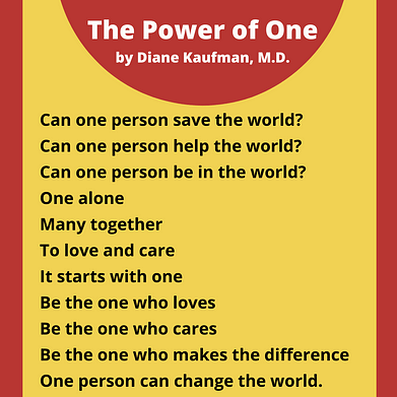
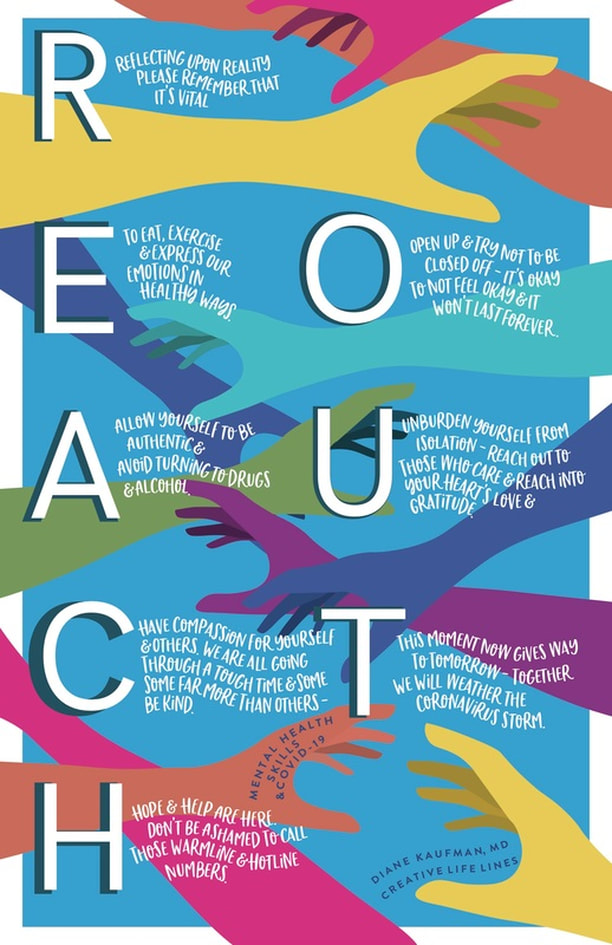
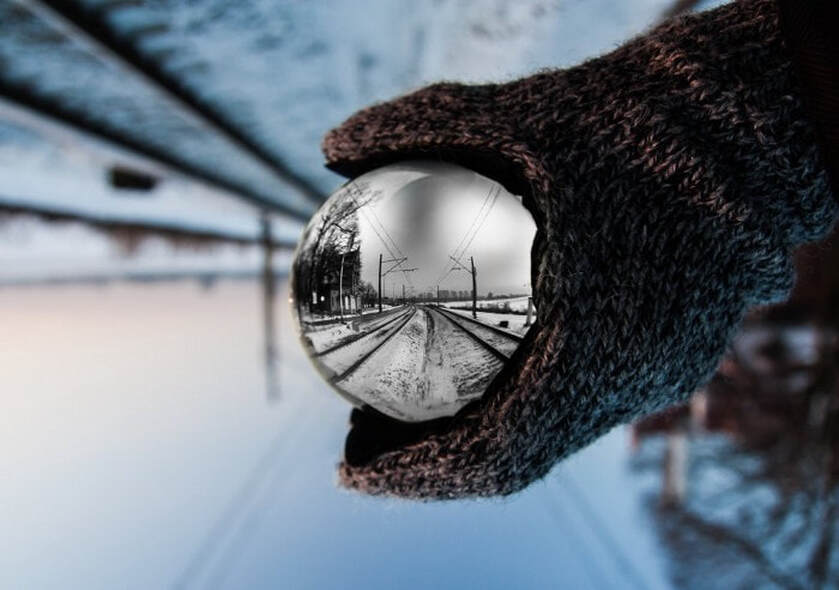

 RSS Feed
RSS Feed